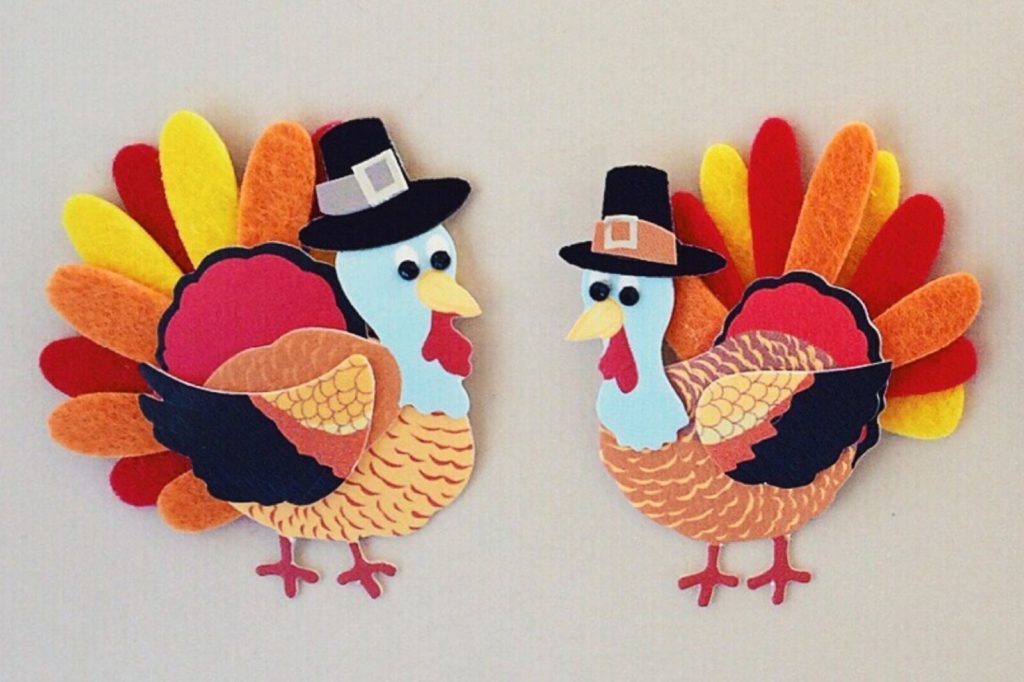Since my children were young, we’ve practiced the same Thanksgiving tradition. During the first week of November, we sit down together and make our “Thankful Turkeys.” We trace our hands (my youngest daughter’s are now almost as big as mine!) on recycled brown paper grocery bags, then cut our “feathers” from bright construction paper and write what we are thankful for on our feathers.
Some years, this activity is harder than other years. When you’re parenting a child with mental illness, some years, you might not feel very grateful for anything at all. One year, I wrote just a single word: “sleep.” Another year, I wrote, “cheap drywall patches from Home Depot.”
The holiday season can be tough on everyone, but for parents of children with mental illness, the season of mandatory love and joy can bring tears and exhaustion. When my son was younger, the sensory overload of jangling bells and bright lights that festooned every store inevitably triggered epic meltdowns. Those years, I was thankful for online shopping.
My friend and fellow advocate Ann Douglas, author of Parenting through the Storm: Find Help, Hope, and Strength when Your Child Has Psychological Problems (2017, Guildford Press), notes that gratitude is actually important to our physical health: “Intentionally focusing on feelings of gratitude reduces stress, enhances mental clarity, improves functioning of the autonomic nervous system, lowers blood pressure, and boosts your mood” (p. 93)
In fact, gratitude is not a state of being; it’s a habit that anyone can form with practice and consistency. And it’s a habit that we can and should teach to our children. In my house, we practice gratitude in simple, practical, mindful ways.
- We say, “thank you” to everyone who serves us, from cashiers to restaurant servers to the brother or sister who made dinner or set the table that night.
- We write thank you notes. In this age of ephemeral social media, a hand-written card may seem like an anachronism. But writing down our gratitude to those who have helped us is a key part of fostering the gratitude habit.
- We keep gratitude journals. Often the things I am grateful for occur through simple luck. I’ve learned through journaling to see rainbows and roses, to spot bright copper pennies on the sidewalk.
- When we are upset with someone, we take a minute to reflect on a time when we felt grateful to that person. Putting people in context reminds us that none of us are all good or all bad, that we all make mistakes, and we deserve to get and to give second chances.
This last point has been especially important to me as a mother. In one of my favorite plays about the absurdity of modern life, the playwright Christopher Durang’s title references a quote from Thomas Gray’s poem, “laughing wild amidst severest woe,” that often came to me in my darkest moments. When I felt like there were no answers, I would focus on a happy or silly memory and laugh. Laughter can be powerful medicine.
Focusing on the Present
But my most powerful experience of gratitude is much quieter. One day, in the calm after a storm, as I hugged my boy and stroked his hair and wiped the tears from his cheeks, I thought, “I am grateful for the present tense.”
More than anything, the gift of present tense experience has proved to be the unexpected joy of parenting a child who has difficult differences. Before I became Eric’s mother, I was always living for the future, planning the next big thing well before the current holiday meal or activity was even finished. After Eric, I learned to enjoy moments, to live within them, to breathe in and out and feel my lungs expand. I learned joy in a smile, a laugh, or one of his silly puns. At times, life felt absurd, but the present tense moments brought everything into focus.
Becoming grateful for the present tense enabled me to see all of the things in my life that were going right. I was grateful for Eric’s doctors, for his teachers, for one brave boy who was Eric’s friend, no matter how much the other children at school would tease and taunt him. I was grateful for the friend who would listen to me when I felt like I had no one else to turn to.
In time, I even became grateful for the struggles. It’s easy to love when times are good. Parenting a child with mental illness, a child who tested every bond we had forged, taught me the true joy of unconditional love. Loving Eric made me want hope and justice for other people living with mental illness.
Gratitude for what we have been given—treatment that works, and the hope of recovery—has made me want the same outcomes for all children and all families. And it has made me grieve all the more for my friends who have lost their children to this illness, whose holidays are colored grey by grief.
This season, when you’re enduring your own child’s mall meltdown, take a minute once you’re both safe in the car and try to practice gratitude—for the strengths you have, for the child you love, for a universe that will send you roses and rainbows and bright copper pennies. For thankful turkeys and seasons of giving. And most of all, for hope, recovery, and second chances.










